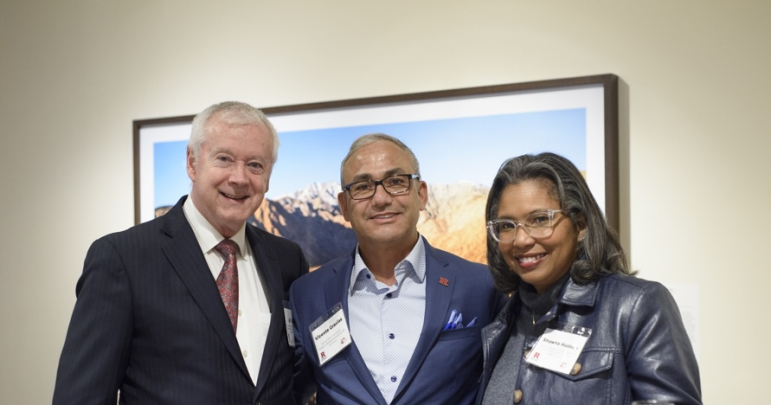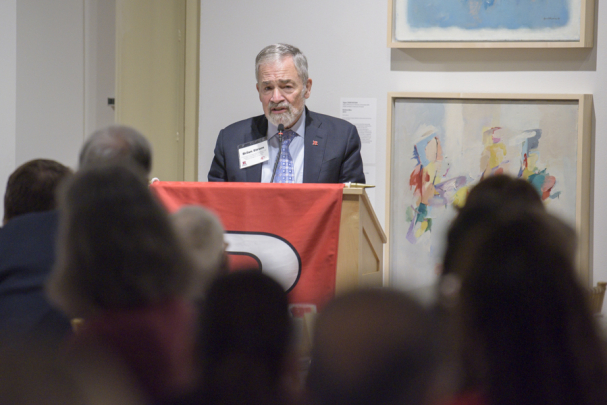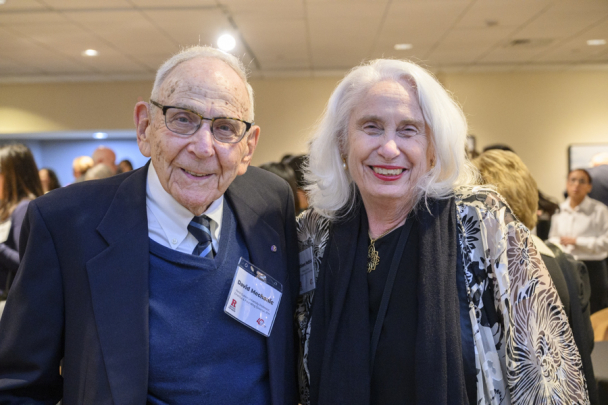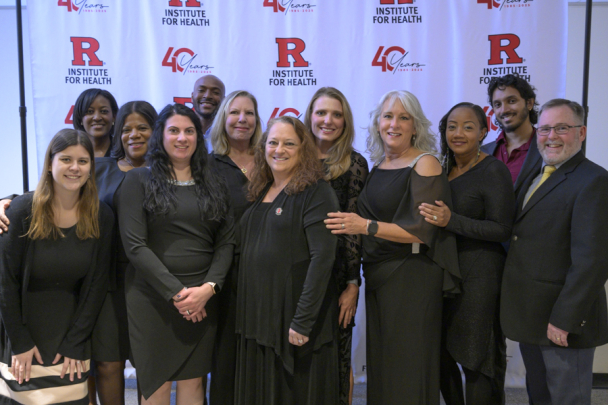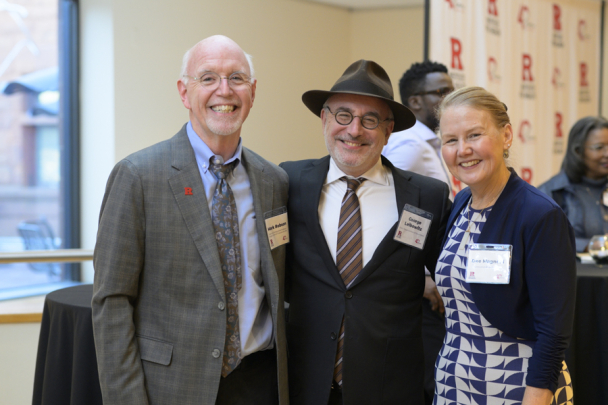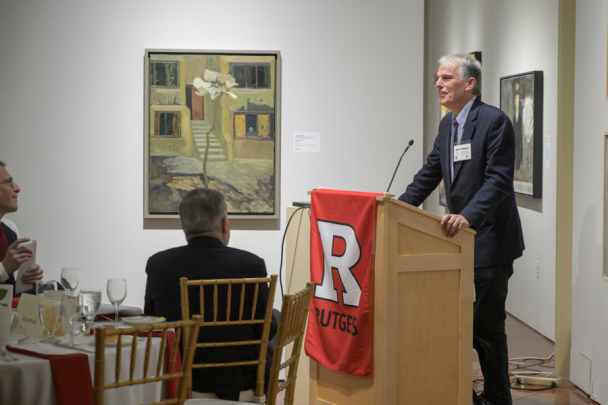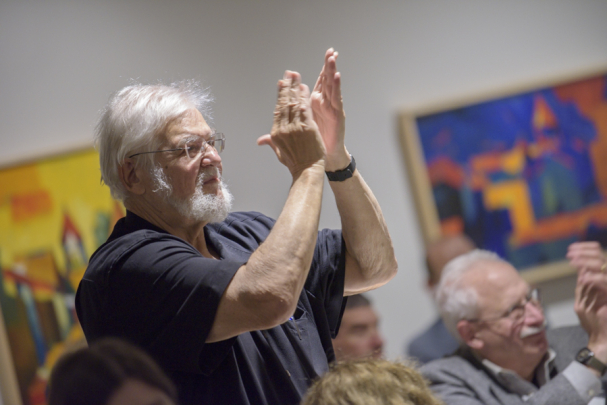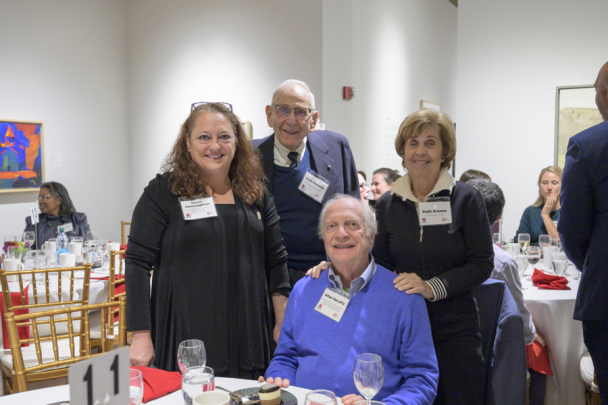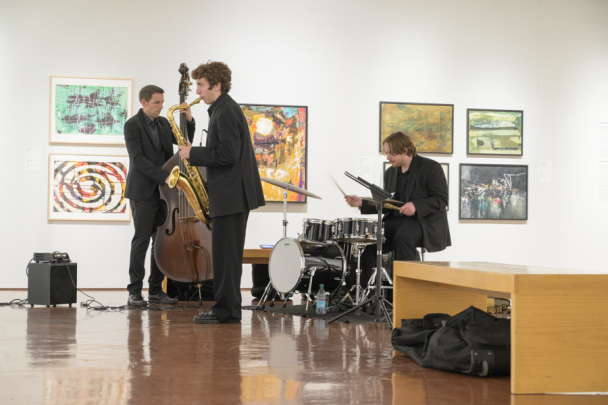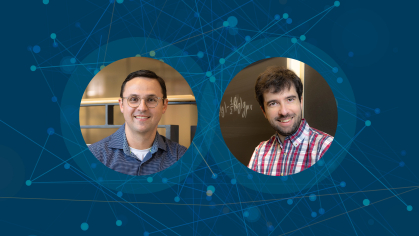Rutgers Institute for Health Showcases 40 Years of Research Impact
Members of the Rutgers community celebrated four decades of interdisciplinary research
More than 100 members of the Rutgers Health community gathered Oct. 9 to commemorate the 40th anniversary of the Rutgers Institute for Health, Health Care Policy and Aging Research.

The anniversary celebration at the Zimmerli Art Museum in New Brunswick, N.J., featured a commemorative video showcasing the institute’s history, as well as remarks from esteemed speakers. Institute alumni, current members and staff and deans and directors from across Rutgers joined the event to recognize the Institute’s achievements over the past four decades.
“As we are facing difficult times, it makes it all the more important that the institute uphold its core principles, including the integration of diverse perspectives, the application of rigorous scientific methods, and the identification of important public health issues,” said Mark Olfson, the event’s keynote speaker, the Elizabeth K. Dollard Professor of Psychiatry, Medicine and Law and a professor of epidemiology at Columbia University Medical Center. Olfson was a postdoctoral fellow at the institute from 1988 to 1989 and has been an associate member since then.
The institute was founded in 1985 by medical sociologist David Mechanic to establish a hub for research at the intersection of health and the social sciences. Since its inception, the institute has played a pivotal role in shaping the health research landscape at Rutgers. Through interdisciplinary studies, strategic partnerships across the University and a focus on addressing population health challenges, the institute has contributed to vital research in fields including state health policy, health services, pharmacoepidemiology, aging and global health.
Over the years, the institute has supported hundreds of researchers and trainees, facilitated collaborations throughout academia and industry and secured grants to drive innovation in health research. The institute is home to eight research units, more than 50 core faculty members and dozens of associate and adjunct members. Since 2020, core members have secured over $143 million in external funding, with more than $84 million from the National Institutes of Health.
In his remarks, Tobias Gerhard, the director of the institute, attributed the unit’s long-term success to its people and culture. He added how the institute will address timely research questions, particularly in the areas of climate, health and health care and health artificial intelligence, through two new centers focused on these areas.
“Many of today’s challenges require exactly the type of interdisciplinary expertise that the institute was built for,” Gerhard said. “The future is bright.”
Research by institute investigators has led to real-world impact. In the 2010s, research on health insurance coverage requirements for young adults was cited in federal rules guiding implementation of the Affordable Care Act, and research on the act’s individual coverage mandate was invoked in oral arguments before the U.S. Supreme Court.
More recently, in 2022, institute researchers testified in congressional briefings, contributing to the bipartisan passage of the Mainstreaming Addiction Treatment Act. This year, institute researchers presented evidence supporting the cardiac safety of a popular antiseizure medication, providing reassurance after the Food and Drug Administration issued a warning based on case reports.
“The institute brings together scholars and scientists who don’t just generate knowledge but translate it into action – ensuring that evidence guides practice, and practice informs policy,” said Rutgers Health Chancellor Brian Strom.
